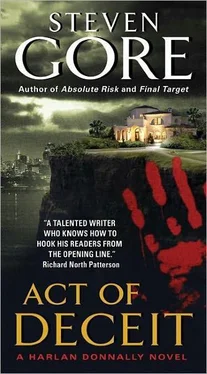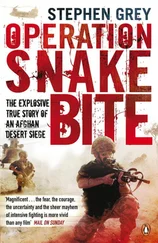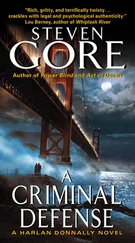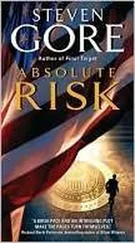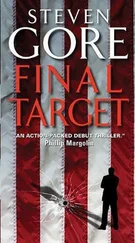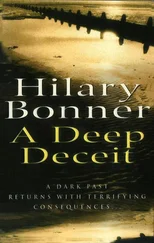Steven Gore - Act of Deceit
Здесь есть возможность читать онлайн «Steven Gore - Act of Deceit» весь текст электронной книги совершенно бесплатно (целиком полную версию без сокращений). В некоторых случаях можно слушать аудио, скачать через торрент в формате fb2 и присутствует краткое содержание. Жанр: Триллер, на английском языке. Описание произведения, (предисловие) а так же отзывы посетителей доступны на портале библиотеки ЛибКат.
- Название:Act of Deceit
- Автор:
- Жанр:
- Год:неизвестен
- ISBN:нет данных
- Рейтинг книги:5 / 5. Голосов: 1
-
Избранное:Добавить в избранное
- Отзывы:
-
Ваша оценка:
- 100
- 1
- 2
- 3
- 4
- 5
Act of Deceit: краткое содержание, описание и аннотация
Предлагаем к чтению аннотацию, описание, краткое содержание или предисловие (зависит от того, что написал сам автор книги «Act of Deceit»). Если вы не нашли необходимую информацию о книге — напишите в комментариях, мы постараемся отыскать её.
Act of Deceit — читать онлайн бесплатно полную книгу (весь текст) целиком
Ниже представлен текст книги, разбитый по страницам. Система сохранения места последней прочитанной страницы, позволяет с удобством читать онлайн бесплатно книгу «Act of Deceit», без необходимости каждый раз заново искать на чём Вы остановились. Поставьте закладку, и сможете в любой момент перейти на страницу, на которой закончили чтение.
Интервал:
Закладка:
But every attempt to find Brown had died in failure.
SFPD patrol officers had only shrugged their shoulders when Donnally stopped them on the street.
Detectives had leaned back in their desk chairs, offering war stories as substitutes for the information they didn’t have.
All anyone possessed were vague memories of someone who sort of looked like Brown who’d been around the park years ago.
Donnally stared out at the ferry dock, wondering whether Katrisha had been right. Maybe Brown was dead, his bones long scavenged by rats in a ravine up in Marin County or down the Peninsula, with nothing but a rusting shopping cart filled with recyclable cans and bottles marking the spot.
He heard a foghorn blow, then a red and white tugboat glided into view, guiding a container ship through the swirling mist toward the Port of Oakland and leaving a black plume of diesel exhaust in its wake. He could just make out the captain standing at the controls inside the upper bridge of the rusting craft and the yellow-slickered crewman poised at the bow.
Donnally then felt his mind sweep upward and he imagined himself looking down at a nautical chart of the bay with its contours of land, depths of water, edges of coastline, tidal currents, and sunken hazards: all the details needed for navigation, except for a marked route, much less an inland passage leading to whatever bush Charles Brown was living, or had died, under.
Turning the ignition, Donnally realized that the mental map was missing something else: his point of departure. He was already at sea and wasn’t sure where he’d started from. He didn’t even feel as if he’d pushed off from solid ground, rather he’d just found himself in motion. He couldn’t even say it had been the flesh and blood of Mauricio, for the truth of his crime had acted as a solvent, somehow dissolving him, leaving only a stain behind.
And he knew that’s exactly what Mauricio would’ve called it.
Donnally checked his side mirror and pulled into traffic, the acceleration feeling for a moment like a rush of relief, for it carried with it the realization that with the death of Anna, the stain that Mauricio left had been washed away into the nothingness of the past.
But only for a moment, for he felt the vertigo of a waxing and waning tide swaying him first forward toward an unknown shore and then backward toward the depths of his own motives.
Chapter 10
“Y our father called,” Janie Nguyen said, looking over from the pillow next to Donnally’s, her head backlit by the light on the nightstand. The smell of sweat and perfume and sex infused the upstairs bedroom air like wilting gardenias, overripe and cloying.
He glanced over at the bedside clock: 10:30 P.M.
“How come you didn’t tell me before we got into bed?”
Janie grinned. “You really want me to answer that?”
He didn’t.
“What did he have to say?” Donnally asked.
Janie giggled. “He asked me if I wanted to play an Asian madam in the new movie he’s planning to shoot. No lines. I just lounge around in my underwear for a couple of days. He said he was looking for the classical Vietnamese look.” She lowered the sheet, exposing her breasts. “I’m not sure he had these in mind or my face.”
Donnally knew he meant both, because his father had insinuated a hundred times that Janie reminded him of the elegant prostitutes he’d met at the Autumn Cloud Hotel in Saigon during the war, the nouveau riche “dollar queens” who wore silk in the daytime and shopped in the officers’ PX, and who were beyond the reach of the enlisted men, forcing them to settle on bar girls.
His father’s almost incestuous sexual interest in Janie made Donnally nauseated and angry. He realized that his fury showed on his face when Janie pulled away and covered herself again, as if for protection.
“What?” she asked.
Donnally shrugged. “It’s nothing.”
“If it was nothing, your jaw wouldn’t be clenched like that.”
He stared up at the ceiling, deciding how much to say and whether to risk the sort of all-night conversations that had led to their last breakup by ranging into borderlands where neither wanted to go. He felt an internal shrug of resignation, of inevitability.
“He thought it would be funny to call you a prostitute,” Donnally said. “And see how you would react.”
She reddened. “He said he wanted me to play one, not be one.”
“There’s no difference in his mind, because what thrills him is the effect his words have, not the reality behind them. He knows that if you yell fire in a theater, everybody’s going run for it, whether there really is one or not.”
Janie rolled over on her back. “So offering me the job was him yelling fire in your theater.”
“For the thousandth time.”
She sighed, leaned back, and folded her arms over her breasts.
“Now I really do feel like a prostitute.”
“W here’s the director?” Donnally asked his mother as he walked into her third-floor bedroom in the Hollywood Hills mansion late the following morning.
She looked up from her book lying on the table in front of her and rolled her eyes.
“You mean your father?”
“He tried out for the part a couple of times,” Donnally said as he approached where she sat in a recliner by the open window, “but couldn’t carry it off.”
“Maybe you should give him a new audition.”
“I’ll check the sign-in sheet and see if he’s applied.”
Donnally watched disappointment flood his mother’s face. He kissed her forehead, smoothed a few gray hairs that had been disturbed by the breeze, then sat down in a matching chair and took her hands trembling with Parkinson’s into his.
“Sorry,” he said, “I didn’t mean for things to start out this way. I really just came to see how you’re doing.” He glanced out the window, over the circular drive and toward Hollywood and downtown Los Angeles. “Where is he, really?”
She tilted her head in the opposite direction. “He needed a hilltop sunset for his new movie, so he went out early to meet a crew at Rattlesnake Mountain to shoot the dawn.”
Donnally tensed. That was typical of his father, filming a sunrise and running it backward just for the pleasure of deceiving the audience. He couldn’t hear the phrase without thinking of his father’s most famous war movie, Shooting the Dawn, hailed as an existential masterpiece by academic critics who misunderstood the sarcasm of the title, believing that the message was that one’s fate cannot be changed any more than “shooting at the dawn” can stop the sunrise.
For reasons it took Donnally years to grasp, this had been the theme of all his father’s movies, and his method of delivery had always been the same: Take some massacre that haunted the public conscience, like My Lai or Wounded Knee or Hue, change the location, give it a new name, blame it on human nature or the nature of war or on Asian or Indian enemies who not only killed indiscriminately, but murdered the spirit and corrupted the soul and drove anonymous soldiers into berserk orgies of revenge.
Donnally had no doubt that the dawn rising over the landscape of his father’s new movie would illuminate the same thing: men wearing army green or Union blue or Confederate gray portrayed somehow as the true victims of the massacres they themselves committed, as if the forces that drove them to violence were as irresistible as gravitation, as if no willful general in Washington or Richmond or Hanoi or Saigon had ordered them to march into villages and no sergeant had ordered them to fire on the old and the weak, children and infants, cows and pigs and goats, or had ordered the houses or teepees or thatched huts burned and the survivors concentrated in camps.
Читать дальшеИнтервал:
Закладка:
Похожие книги на «Act of Deceit»
Представляем Вашему вниманию похожие книги на «Act of Deceit» списком для выбора. Мы отобрали схожую по названию и смыслу литературу в надежде предоставить читателям больше вариантов отыскать новые, интересные, ещё непрочитанные произведения.
Обсуждение, отзывы о книге «Act of Deceit» и просто собственные мнения читателей. Оставьте ваши комментарии, напишите, что Вы думаете о произведении, его смысле или главных героях. Укажите что конкретно понравилось, а что нет, и почему Вы так считаете.
